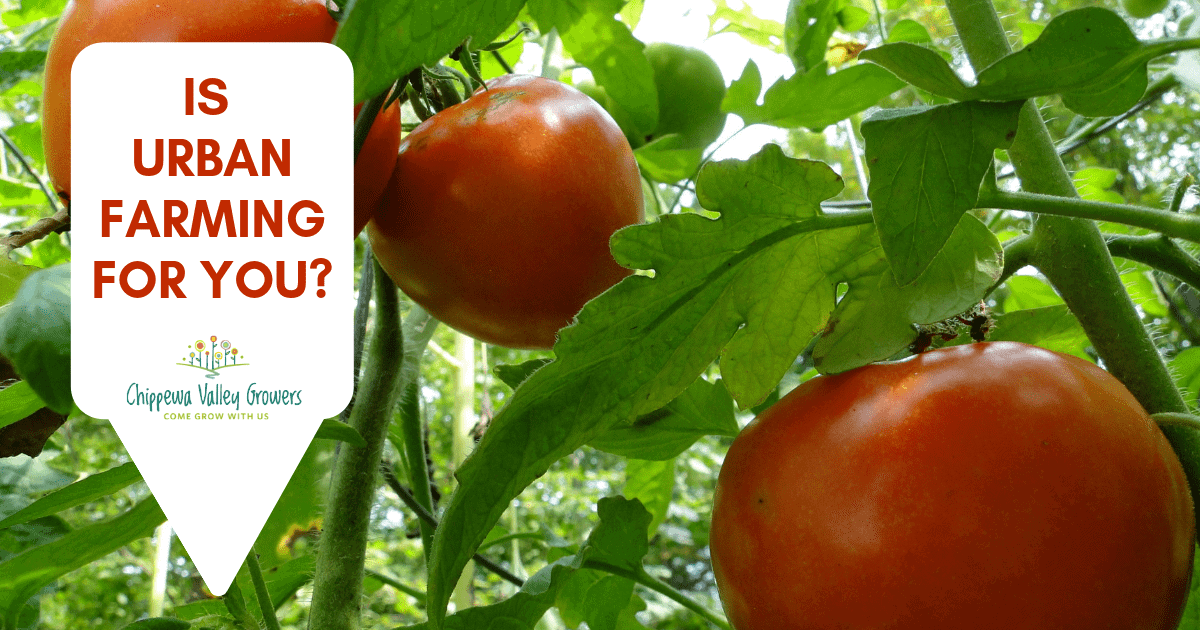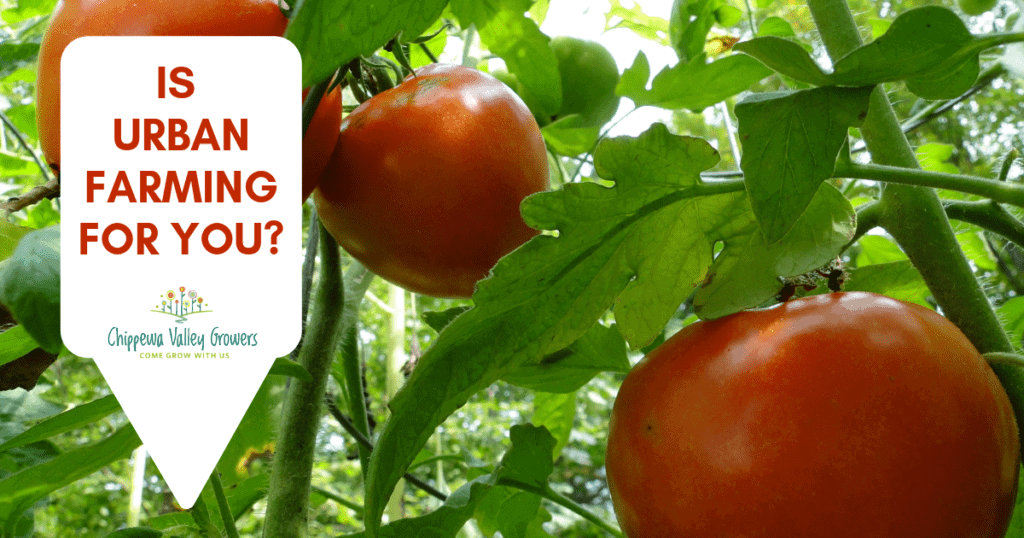

Although we are in an area of the nation noted for farmland, not all of us can claim access to large quantities of high producing acreage. Gratefully, raw land does not have to limit our will to farm.
Urban Farming Then
Long before it carried brand-like connotation with the hipster crowd or was the corporate sustainable thing to do, urban farming filled needs, not just marketing campaigns.
An early example of this was during the economic depression from 1893 through 1897. The Mayor of Detroit initiated a program to help those in need with providing community gardens. Mayor Pingree asked owners of vacant lots to allow others to cultivate the space for vegetable gardens. The first year of the program organized over $9,000 in relief for those in need. Calculated to today’s value, that would be over a quarter of a million dollars worth of food.
World War II brought an abundance of “support the war efforts” propaganda. One effort included pamphlets asking “Could I help the war effort by planting a vegetable garden?” This effort not only supplied food, but it also decreased demand on the needed resources for the war. For example, railroads could move munitions instead of food.
The urban farming initiative has also birthed community gardens that have been around for generations. Forsyth Community Gardening in Forsyth County, NC takes the claim at being the oldest community garden in the US. It started back in 1759 as a medicinal garden and grew into a successful food producing, education providing environment for today.
Urban Farming Today
The architecture of the urban core lends itself well to gardening. While horizontal opportunities decrease, vertical planes have increased. This creates a unique opportunity for urban gardening from (quite literally) a different angle.
Urban farmers are using the walls of parking garages to grow vine foods such as pole beans. Underutilized rooftops become herb gardens. Gardeners transform fire escapes into a vegetable trellis. The rise of urban farming tends to keep the same tempo as the growth of the city around it.
Planting isn’t the only activity to see an uptick in participation. The waining population of bees has also gathered attention. Municipal facilities and businesses alike in downtown Nashville have created bee hive communities along their rooftops, welcoming hundreds of thousands of bees to the Music City.
Backyard chickens have gained in popularity as well. While heavily debated by some neighborhood associations, raising chickens is still providing a food source. For those industrious urban farmers, chicken waste provides an all-natural fertilizer for their gardens. But not everything is sunny side up for followers of the fowl. Raising the animals takes significant work, and it can prove to be a mark on the reputation as well.
Urban Farming for You
If the thought of contributing towards your meals with gardening is enticing but space is limited, a great place to start is in a box. You can use window boxes for more than pansies and geraniums. They can be wonderful, manageable (and moveable) places to grow items such as herbs and vegetables, and can help test your gardening skills in a less risky capacity.
Another option is to look into community gardens such as Chippewa Falls’ Community Garden at Marshall Park or HSHS St. Joseph’s Hospital Community Garden. Leasing a plot is a great option to increase your annual yield this growing season whether for personal use or to donate to a local food pantry.
Whether you are looking to garden in the backyard, farm out of a window box, or take part in a local community garden, we would love the chance to help you plan for your urban farming adventures. From container to plant to garden planning, let’s daydream together.
Since our closest professional experience of interacting with chickens is binge-watching Foghorn Leghorn on Saturday mornings before binge-watching was cool, we will refrain from any poultry advice.
If you want to learn more about flower symbolism or to learn more about what is happening at our Emerald City, please sign up to join our email list.



